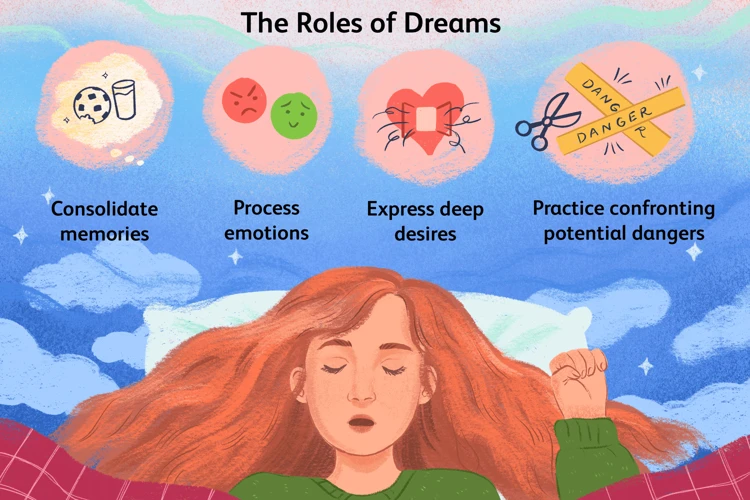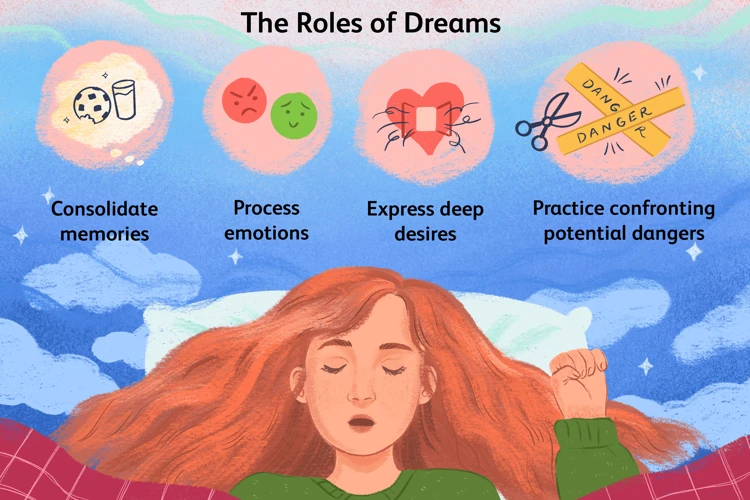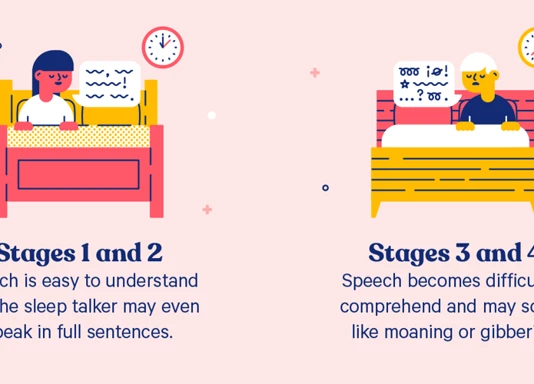Sleep talking, a phenomenon that occurs during sleep, has long been a subject of curiosity and intrigue. Many individuals experience this sleep-related speech without even realizing it, and it can range from simple, mumbled words to full-blown conversations. But is there a connection between sleep talking and stress or anxiety? This article dives into the intricacies of sleep talking, exploring the potential links to stress and anxiety, its causes, effects on mental health, and how to manage it effectively. So, if you’ve ever wondered why you talk in your sleep or if it’s related to your emotions, keep reading to uncover the fascinating relationship between sleep talking and our mental well-being.
What is Sleep Talking?

Sleep talking, also known as somniloquy, is a fascinating phenomenon that occurs during sleep. It involves speaking out loud while in a state of unconsciousness. This sleep-related behavior can range from indiscernible mumbles and gibberish to coherent and comprehensible speech. Sleep talking usually happens during the deeper stages of sleep, particularly during rapid eye movement (REM) sleep, when dreaming occurs. It can happen sporadically or every night, and in some cases, individuals may even hold full conversations or respond to external stimuli. Despite its prevalence, the exact cause of sleep talking remains unclear. Some theories suggest that it may be linked to dreams, as sleep talking can occur during dream states. Others believe it may be associated with an underlying psychological meaning tied to the individual’s emotional state. In some cases, sleep talking can be a symptom of an underlying sleep disorder, such as sleep apnea or sleep-related eating disorder. However, further research is needed to fully understand the mechanisms and implications of sleep talking.
The Link Between Sleep Talking and Stress

Stress and sleep talking are known to have a complex relationship, with stress often being a contributing factor to this unusual sleep behavior. Stress and anxiety can significantly impact our sleep patterns, causing disruptions in the normal sleep cycle and leading to sleep talking episodes. When we experience high levels of stress, our minds are often racing with worrisome thoughts and emotions, which can spill over into our sleep. The emotional distress caused by stress can influence the content of our dreams and manifest as sleep talking. It is believed that anxiety and stress provoke heightened brain activity during sleep, increasing the likelihood of verbalizing our thoughts and emotions. Thus, sleep talking can be seen as a reflection of the psychological turmoil we experience while awake. To learn more about the psychological meaning of sleep talking and its connection to stress, continue reading this article.
1. Understanding Stress and Anxiety
To comprehend the potential link between sleep talking and stress or anxiety, it’s crucial to understand what stress and anxiety entail. Stress is our body’s response to external pressures or demands, while anxiety refers to a feeling of unease, worry, or fear. Both stress and anxiety are common experiences in our daily lives, but when they become chronic or overwhelming, they can have a significant impact on our overall well-being, including our sleep patterns and behaviors. Chronic stress and anxiety can disrupt the body’s natural balance, leading to difficulties falling asleep, staying asleep, or experiencing restful sleep. This can manifest in various sleep disturbances, such as sleep talking. Stress and anxiety may increase the likelihood of intense or vivid dreams, which could contribute to sleep talking episodes. Understanding the relationship between stress, anxiety, and sleep talking is crucial in developing effective strategies to manage this sleep-related behavior. To delve deeper into the connection between sleep talking and dreams, you can read our article on sleep talking and dreams.
2. Impact on Sleep Patterns
A significant aspect of sleep talking is its impact on sleep patterns. When sleep talking occurs, it can disrupt the normal sleep cycles and lead to fragmented or poor-quality sleep. This can result in daytime drowsiness, difficulty concentrating, and reduced cognitive function. The impact of sleep talking on sleep patterns can vary from person to person. Some individuals may experience mild disturbances that do not significantly affect their overall sleep quality, while others may have more frequent and intense episodes that disrupt their sleep throughout the night. Sleep talking can also have an impact on the sleep of bed partners or roommates who may be woken up or disturbed by the person talking in their sleep. It is important to note that while sleep talking itself can disrupt sleep, it may also be a symptom of an underlying sleep disorder, such as sleep apnea or insomnia. If sleep talking becomes persistent or is associated with other sleep-related symptoms, it is recommended to consult a healthcare professional for a comprehensive evaluation and proper diagnosis. Understanding the impact of sleep talking on sleep patterns is crucial in order to address any potential sleep-related issues and promote better overall sleep health.
3. Stress-Related Sleep Disorders
3. Stress-Related Sleep Disorders
Stress can significantly impact our sleep patterns and lead to various sleep disorders. These stress-related sleep disorders can have a detrimental effect on our overall well-being. Here are three common sleep disorders associated with stress:
1. Insomnia: Stress and anxiety can make it difficult to fall asleep, stay asleep, or experience restful sleep. This can result in insomnia, characterized by trouble initiating or maintaining sleep. Chronic stress can contribute to persistent insomnia, further exacerbating stress levels.
2. Sleep Apnea: Stress can also contribute to the development or worsening of sleep apnea, a condition where breathing pauses or becomes shallow during sleep. Anxiety and stress can increase muscle tension, including the muscles responsible for keeping the airway open. This can lead to episodes of interrupted breathing during sleep, causing fragmented sleep and daytime fatigue.
3. Restless Leg Syndrome (RLS): RLS is a neurological disorder characterized by an irresistible urge to move the legs, often accompanied by uncomfortable sensations. Stress and anxiety can exacerbate RLS symptoms, making it difficult to find relief and fall asleep. The resulting lack of sleep can further contribute to stress levels, creating a vicious cycle.
It is important to recognize the interconnectedness between stress and sleep disorders. Addressing and managing stress can help improve sleep quality and reduce the impact of stress-related sleep disorders.
Causes of Sleep Talking

Sleep talking can have various causes, ranging from emotional distress to medications and sleep disorders. Emotional distress plays a significant role in sleep talking, as heightened stress, anxiety, and unresolved feelings can manifest during sleep. Stressful events or conflicts in one’s personal or professional life can trigger sleep talking episodes. Additionally, certain medications and substances can contribute to sleep talking, such as sedatives, antidepressants, and alcohol. These substances can alter sleep patterns and disrupt normal sleep cycles, leading to the occurrence of sleep talking. Furthermore, sleep disorders like sleep apnea, night terrors, and REM sleep behavior disorder have been associated with sleep talking. These disorders can disrupt sleep architecture and increase the likelihood of experiencing sleep talking episodes. Understanding the potential causes behind sleep talking can help individuals identify triggers and seek appropriate management strategies to alleviate this sleep-related phenomenon.
1. Emotional Distress
Emotional distress can be a significant factor in triggering sleep talking episodes. When individuals experience high levels of stress, anxiety, or emotional turmoil, it can manifest in their sleep behavior. Sleep talking acts as an outlet for the subconscious mind to express these intense emotions. It is not uncommon for people who are going through challenging life situations, such as relationship issues, work-related stress, or financial difficulties, to experience sleep talking as a result. The content of sleep talking during emotional distress can vary, ranging from angry outbursts or expressing fears to reliving traumatic events or engaging in emotional conversations. It’s important to note that while sleep talking itself may not be harmful, the underlying emotional distress should be addressed. Seeking support from therapists or counselors can help manage and alleviate emotional burdens, facilitating a healthier sleep pattern.
2. Medications and Substances
2. Medications and substances can play a significant role in causing sleep talking. Certain medications, such as sedatives, antidepressants, or antipsychotics, can affect the brain’s neurotransmitters and disrupt the normal sleep cycle. These medications may increase the likelihood of experiencing sleep talking episodes. Similarly, the consumption of substances like alcohol, nicotine, and caffeine can have a stimulant effect on the body, causing disturbances in sleep. These substances can also alter the sleep architecture, leading to sleep talking. It’s important to note that the effects of medications and substances on sleep talking can vary from person to person. Some individuals may be more sensitive to these substances and experience heightened sleep talking episodes, while others may not be affected as significantly. If you suspect that medications or substances are contributing to your sleep talking, it’s important to consult with a healthcare professional who can provide guidance and adjust your medication regimen if necessary.
3. Sleep Disorders
Sleep disorders can play a significant role in the occurrence of sleep talking. There are several specific sleep disorders that have been linked to sleep talking. Sleep apnea is one such disorder, characterized by pauses in breathing during sleep, resulting in disrupted sleep patterns. Sleep apnea can contribute to sleep talking due to the frequent awakenings it causes, leading to potential vocalizations during these arousal periods. Another sleep disorder associated with sleep talking is REM sleep behavior disorder. This disorder involves individuals acting out their dreams physically, often accompanied by vocalizations. Sleep talking may be more prevalent in individuals with this disorder, as their dreams become more vivid and intense. Additionally, certain parasomnias, such as nightmares and sleep-related eating disorder, have been linked to sleep talking as well. Nightmares may elicit verbal responses during sleep, while sleep-related eating disorder can introduce speech during episodes of sleepwalking and nocturnal eating. It is essential to address underlying sleep disorders when managing sleep talking, as treating the root cause can often alleviate or reduce sleep-related speech.
Effects of Sleep Talking on Mental Health

Sleep talking can have various effects on an individual’s mental health. One of the significant impacts is the increased levels of anxiety it can cause. Sleep talkers may experience heightened worry and stress due to the content of their unconscious speech or the fear of revealing personal thoughts or secrets while asleep. Additionally, the disrupted sleep and fatigue caused by sleep talking can worsen anxiety and contribute to overall mental and emotional exhaustion. The constant interruptions in sleep can lead to daytime sleepiness, difficulty concentrating, and a decreased ability to cope with stressors. Another potential impact of sleep talking is relationship strain. Partners or roommates of sleep talkers may struggle with disrupted sleep due to the noise, leading to frustration and resentment. Open communication and understanding are crucial in managing the effects of sleep talking on mental health and maintaining healthy relationships.
1. Increased Anxiety Levels
One of the effects of sleep talking on mental health is the potential for increased anxiety levels. When someone experiences frequent episodes of sleep talking, it can be an indication that their stress and anxiety levels are elevated. Sleep talking itself may not directly cause anxiety, but it can be a manifestation of underlying emotional distress. The act of talking in one’s sleep can be a reflection of the subconscious mind processing and expressing the anxieties and worries that are present during waking hours. This can lead to a vicious cycle where sleep talking increases anxiety, and anxiety, in turn, contributes to more sleep talking episodes. It’s important to note that not everyone who sleep talks will experience increased anxiety, as individuals respond differently to stress and stress-related behaviors. However, if sleep talking becomes a persistent issue and is accompanied by heightened anxiety during waking hours, it may be beneficial to seek professional help to address and manage anxiety effectively.
2. Disrupted Sleep and Fatigue
Disrupted sleep and fatigue are two significant effects that can result from sleep talking. When an individual engages in sleep talking, it can disrupt their sleep patterns and lead to fragmented sleep. This fragmentation can prevent them from achieving deep, restorative sleep, leaving them feeling tired and fatigued during the day.
Disrupted sleep can occur not only for the person who is sleep talking but also for their bed partner or anyone in close proximity. The sudden outbursts of speech can startle and wake up others, interrupting their sleep as well. This can create a cycle of sleep disruption that affects the overall quality and duration of sleep for everyone involved.
The constant interruptions in sleep due to sleep talking can lead to fatigue during waking hours. Fatigue can manifest as excessive daytime sleepiness, difficulty concentrating, decreased cognitive function, and a general lack of energy. It can impact productivity, mood, and overall well-being.
To better understand the impact of disrupted sleep and fatigue, it can be helpful to visualize the effects in a list:
– Fragmented sleep patterns
– Reduced deep sleep and REM sleep
– Increased daytime sleepiness
– Difficulty focusing and concentrating
– Impaired cognitive function
– Decreased energy levels
– Mood changes and irritability
– Decreased performance and productivity
It is important to address and manage sleep talking to mitigate these effects on sleep quality and daily functioning. By exploring techniques to manage sleep talking and improve sleep hygiene, individuals can minimize the disruptions, restore their sleep patterns, and alleviate the resulting fatigue and daytime sleepiness.
3. Relationship Strain
Relationship strain is one of the potential effects of sleep talking on an individual’s mental health. When someone talks in their sleep, it can create challenges and difficulties within their relationships, especially with their partner or roommates. Sleep talking can be disruptive to the sleep of those sharing the same space, leading to fatigue and irritability. The partner or roommate may experience difficulty falling asleep or staying asleep due to the noise and disturbance caused by the sleep talker’s nighttime conversations. This can lead to resentment and frustration, resulting in strained relationships. The content of the sleep talking itself can also contribute to relationship strain. Sometimes, the things said during sleep talking may be confusing, nonsensical, or even hurtful. It can be challenging for the partner to differentiate between the sleep talker’s true thoughts and feelings and those expressed during sleep. This can lead to misunderstandings and disputes, potentially creating emotional distance and tension in the relationship. It is crucial for individuals who talk in their sleep to communicate openly with their partners or roommates about their sleep talking habits, seek understanding and support, and work together to find solutions that can alleviate the strain caused by this sleep-related behavior.
How to Manage Sleep Talking
Managing sleep talking can be a challenge, but there are several strategies that can help individuals control this sleep-related behavior. Stress management techniques such as deep breathing exercises, meditation, and engaging in activities that promote relaxation can help reduce overall stress levels, which may contribute to sleep talking. Additionally, establishing a regular sleep routine and practicing improved sleep hygiene can make a significant difference. This includes creating a calm and comfortable sleep environment, avoiding stimulants like caffeine or electronics before bed, and maintaining a consistent sleep schedule. Seeking professional help from a sleep specialist or therapist may also be beneficial, especially if sleep talking is interfering with daily functioning or causing distress. They can provide a comprehensive evaluation, diagnose any underlying sleep disorders, and recommend appropriate treatment options. Remember that managing sleep talking requires patience and persistence, as it may take time to find the most effective strategies for each individual.
1. Stress Management Techniques
When it comes to managing stress and anxiety, there are several effective techniques that can help alleviate the symptoms of sleep talking. Stress management techniques focus on reducing the overall stress levels in your life, which can have a positive impact on your sleep patterns and reduce the occurrence of sleep talking episodes. One popular technique is deep breathing and relaxation exercises. These techniques involve taking slow, deep breaths and consciously relaxing each part of your body, starting from your toes all the way up to your head. You can also try engaging in stress-reducing activities such as yoga, meditation, or engaging in hobbies that you enjoy. Another helpful technique is establishing a bedtime routine. This can include activities such as reading a book, taking a warm bath, or listening to calming music before going to bed. Additionally, maintaining a consistent sleep schedule by going to bed and waking up at the same time every day can help regulate your body’s internal clock and promote better sleep. Lastly, talking to a therapist or seeking professional help can provide valuable support in managing stress and anxiety. A mental health professional can offer guidance tailored to your specific needs and provide techniques to cope with stress in a healthy way. By incorporating these stress management techniques into your daily routine, you can effectively reduce stress levels and potentially minimize the occurrence of sleep talking episodes.
2. Improved Sleep Hygiene
Improved sleep hygiene can play a significant role in managing sleep talking and promoting overall sleep quality. Sleep hygiene refers to the practices and habits that contribute to healthy sleep. Here are some strategies to enhance sleep hygiene and potentially reduce sleep talking episodes:
1. Stick to a consistent sleep schedule: Establishing a regular sleep routine can help regulate your body’s internal clock and promote better sleep. Try to go to bed and wake up at the same time every day, even on weekends.
2. Create a relaxing bedtime routine: Engaging in relaxing activities before bed can signal to your body that it’s time to wind down. Consider activities such as reading a book, taking a warm bath, or practicing relaxation techniques like deep breathing or meditation.
3. Make your sleep environment conducive to sleep: Ensure that your bedroom is quiet, dark, and at a comfortable temperature. Use earplugs, eye masks, or white noise machines if necessary. Make sure your mattress and pillows are comfortable and supportive.
4. Limit exposure to electronic devices before bed: The blue light emitted from screens can disrupt your sleep patterns. Aim to avoid electronic devices, such as smartphones and laptops, for at least an hour before bed. Instead, engage in calming activities that help prepare your mind and body for sleep.
5. Avoid stimulants and heavy meals before bedtime: Stimulants like caffeine and nicotine can interfere with sleep. It’s best to avoid these substances, along with heavy meals, close to bedtime. Opt for a light, balanced snack if needed.
6. Create a sleep-friendly lifestyle: Regular exercise can promote better sleep, but avoid intense workouts too close to bedtime as it may interfere with falling asleep. Additionally, limit daytime napping, as it can disrupt nighttime sleep.
By incorporating these improved sleep hygiene practices into your daily routine, you can create a sleep-conducive environment and potentially reduce sleep talking episodes. Remember, consistency is key when implementing these changes, and it may take time to see noticeable improvements.
3. Seeking Professional Help
Seeking professional help can be a valuable step in managing sleep talking, especially if it is accompanied by other sleep disturbances or if it is causing significant distress. Consulting with a healthcare professional, such as a sleep specialist or therapist, can provide a comprehensive evaluation of your sleep patterns and mental health. A sleep specialist can conduct a sleep study to monitor your brain waves, breathing, and movements during sleep to identify any underlying sleep disorders that may be contributing to your sleep talking. Additionally, a therapist can help explore any underlying psychological factors, such as stress or anxiety, that may be exacerbating the sleep talking episodes. They can provide guidance on stress management techniques, cognitive-behavioral therapy (CBT), or other appropriate interventions to address the root causes of the sleep talking. Remember, seeking professional help can offer valuable insights, customized strategies, and support to effectively manage sleep talking and improve your overall sleep quality and mental well-being.
Conclusion
In conclusion, sleep talking is a fascinating phenomenon that occurs during sleep and can be linked to both stress and anxiety. The relationship between sleep talking and stress is complex, as stress can both contribute to sleep talking and be exacerbated by it. Stress and anxiety can disrupt sleep patterns, leading to an increased likelihood of sleep talking episodes. The causes of sleep talking can vary, including emotional distress, medications, substances, and sleep disorders. The effects of sleep talking on mental health can be significant, including increased anxiety levels, disrupted sleep, and strain on relationships. Managing sleep talking involves employing stress management techniques, improving sleep hygiene, and seeking professional help when necessary. By addressing these factors, individuals can better manage their sleep talking and promote overall mental well-being. It is important to remember that sleep talking is a common occurrence and does not necessarily indicate a serious underlying disorder.
Frequently Asked Questions
1. Can anyone experience sleep talking?
Yes, sleep talking can happen to anyone, regardless of age or gender. It is most common in children, but adults can also experience it.
2. Is sleep talking a sign of a sleep disorder?
Sleep talking itself is not considered a sleep disorder. However, it can be a symptom of an underlying sleep disorder, such as sleep apnea or REM sleep behavior disorder.
3. Can stress and anxiety contribute to sleep talking?
Yes, stress and anxiety can contribute to sleep talking. Heightened emotions and mental distress can disrupt sleep and lead to increased instances of sleep talking.
4. What is the difference between sleep talking and sleepwalking?
Sleep talking is the act of speaking during sleep, while sleepwalking involves physical movement and actions while asleep. The two are separate phenomena but can sometimes occur together.
5. Can sleep talking be harmful?
In general, sleep talking itself is not harmful. However, if it is accompanied by other disruptive behaviors or symptoms, it may be worth exploring further with a healthcare professional.
6. Can sleep talking be controlled or prevented?
While it may not always be possible to completely control or prevent sleep talking, stress management techniques and improving sleep hygiene can help reduce its frequency.
7. Can sleep talking reveal hidden emotions or secrets?
While it is tempting to believe that sleep talking can reveal hidden emotions or secrets, it is important to remember that it is largely a random and unconscious activity. Its content may not necessarily reflect one’s true waking thoughts or experiences.
8. Is sleep talking more common during certain sleep stages?
Sleep talking is more commonly observed during REM sleep, which is the stage associated with intense dreaming. However, it can occur during other stages of sleep as well.
9. Does sleep talking have any impact on sleep quality?
For the person who is sleep talking, it may not have a significant impact on sleep quality. However, it can disturb the sleep of a bed partner or household members in the same room.
10. When should I be concerned about sleep talking?
If sleep talking is accompanied by other sleep-related behaviors or symptoms, such as frequent nightmares, excessive daytime sleepiness, or disruptive sleep patterns, it may be worth discussing with a healthcare professional.








